E-commerce for Rural Development
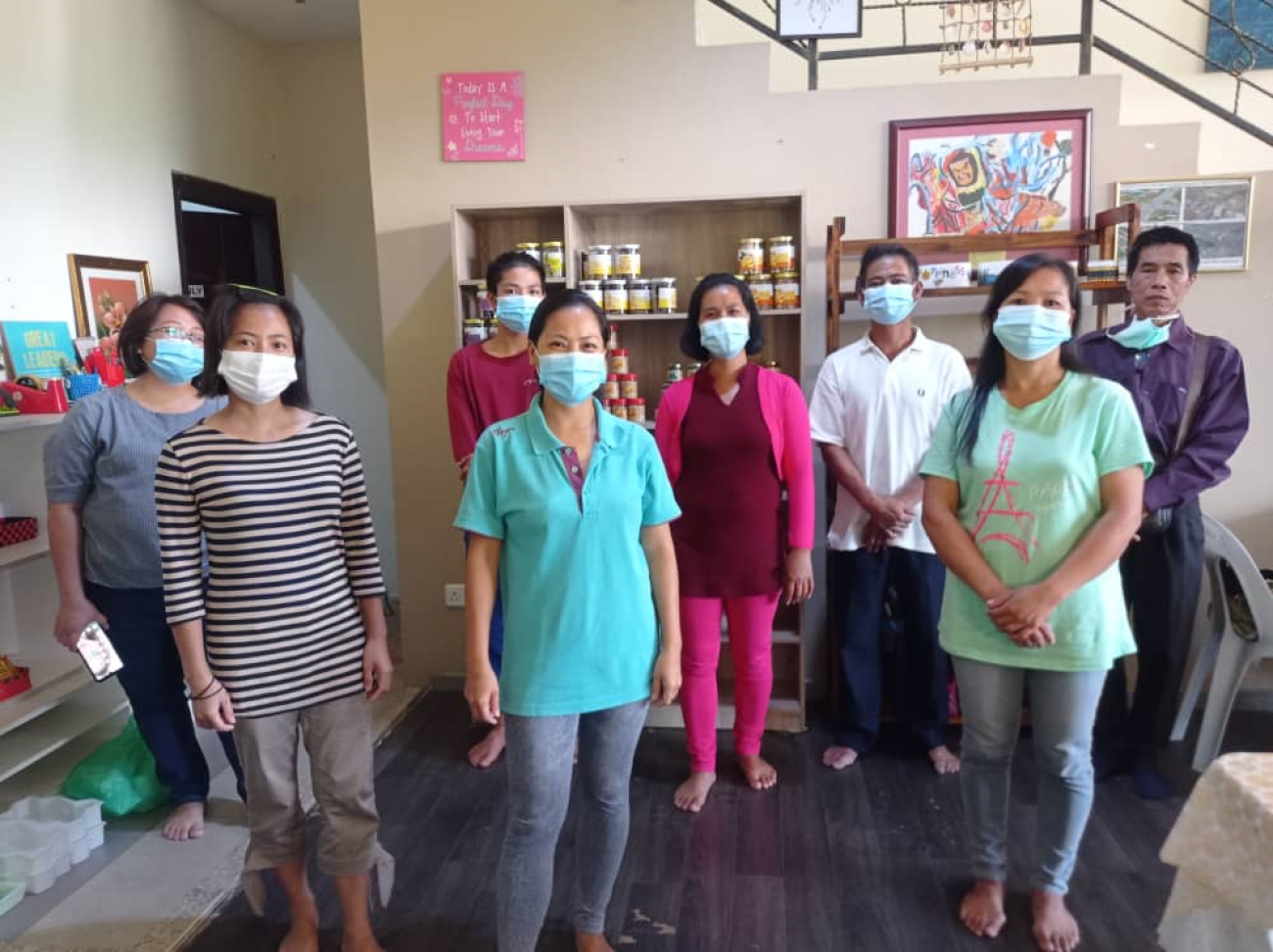
A Response to COVID-19 Recovery
By Chong Yin Wei, Head of Solutions Mapping, United Nations Development Programme; Abhay Pareek, Agri and Livelihoods Consultant; Sandeep Kumar UNCDF, Digital Finance Solution Expert UNCDF; and Alex Feaizi, E- Commerce and Digital Innovation Consultant UNCDF.
In November 2019, the Malaysian Government launched efforts to accelerate adoption of digital solutions among rural micro, small, and medium enterprises (MSMEs). To further support this, a total of US$4.72million from the Economic Stimulus Package was channelled to the Perkhidmatan e-Dagang Setempat (PeDAS) transformation programme, designed to empower MSMEs with digital and entrepreneurial skills necessary to achieve wider market access through e-commerce platforms. This initiative came at an opportune time, as the first Movement Control Order (MCO) was declared weeks later, on 18 March 2020, in response to the COVID-19 outbreak, which forced all physical retail operations to go online. To date, PeDAS has been implemented at 10 rural sites located in Peninsular Malaysia. In doing so, this policy initiative has created opportunities for local entrepreneurs to test and showcase sustainable e-commerce business models in the country [1].
In support of COVID-19 socio-economic response and complementing work in PeDAS, the United Nations Development Programme (UNDP) Malaysia together with the United Nations Capital Development Fund (UNCDF) ventured into East Malaysia to pilot e-commerce ecosystem for rural producers and artisans in Pagalungan and Moyog, Sabah. Residents there face infrastructural barriers such as poor road access, costly delivery services, and limited warehousing and storage facilities. As such, e-commerce is often considered an unviable option for rural producers and a risky investment for industry players. Coupled with digital and technological challenges such as internet connectivity, technophobia, and limited digital literacy, e-commerce growth in rural areas has been slow.
However, our first pilot in Moyog, Sabah demonstrated the feasibility of rural e-commerce, and the function it can serve as an alternative system to the informal economy in rural communities, especially during crisis. E-commerce strengthens community resilience through enhanced savings and cash flow. It took many months of hard work and navigating many unexpected turns of event, but our homegrown e-commerce store, Koondos! was launched on 18 December 2020.
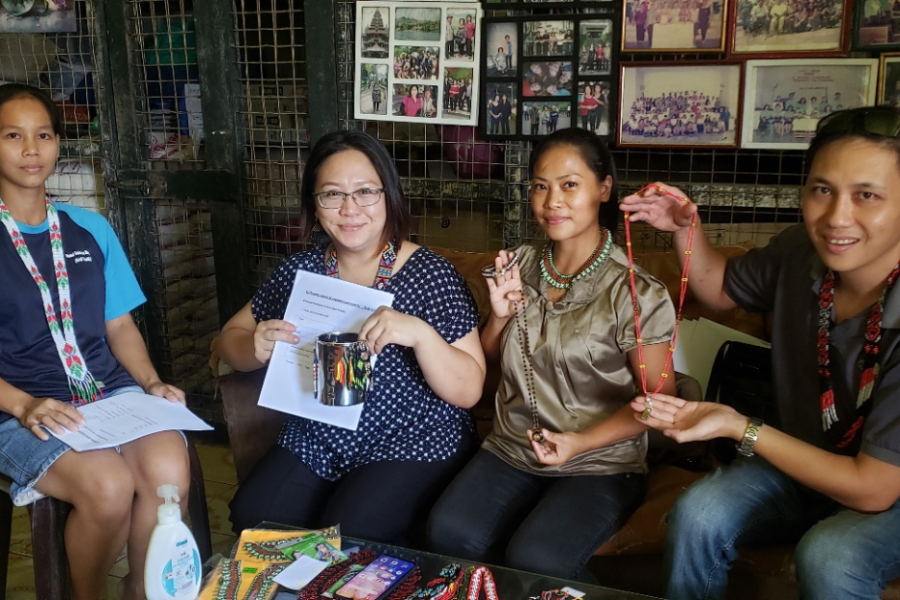
Here are a few insights from our approach and journey thus far:
1. Bottom Up Initiative and Co-creation
With government counterparts occupied with the COVID-19 emergency response, project initiation from the grassroot was a practical approach. TONIBUNG, a civil society organisation that has conducted years of development work with Sabah rural communities, became our hands and feet on the ground. They mapped out emerging issues and opportunities for e-commerce with the grassroots of Pagalungan and Moyog with support from UNCDF. A total of 18 villages representing over 500 households in Pagalungan and 10 villages representing over 234 households in Moyog were interviewed for the feasibility studies- representing women, men, and youth from all along the supply chain.
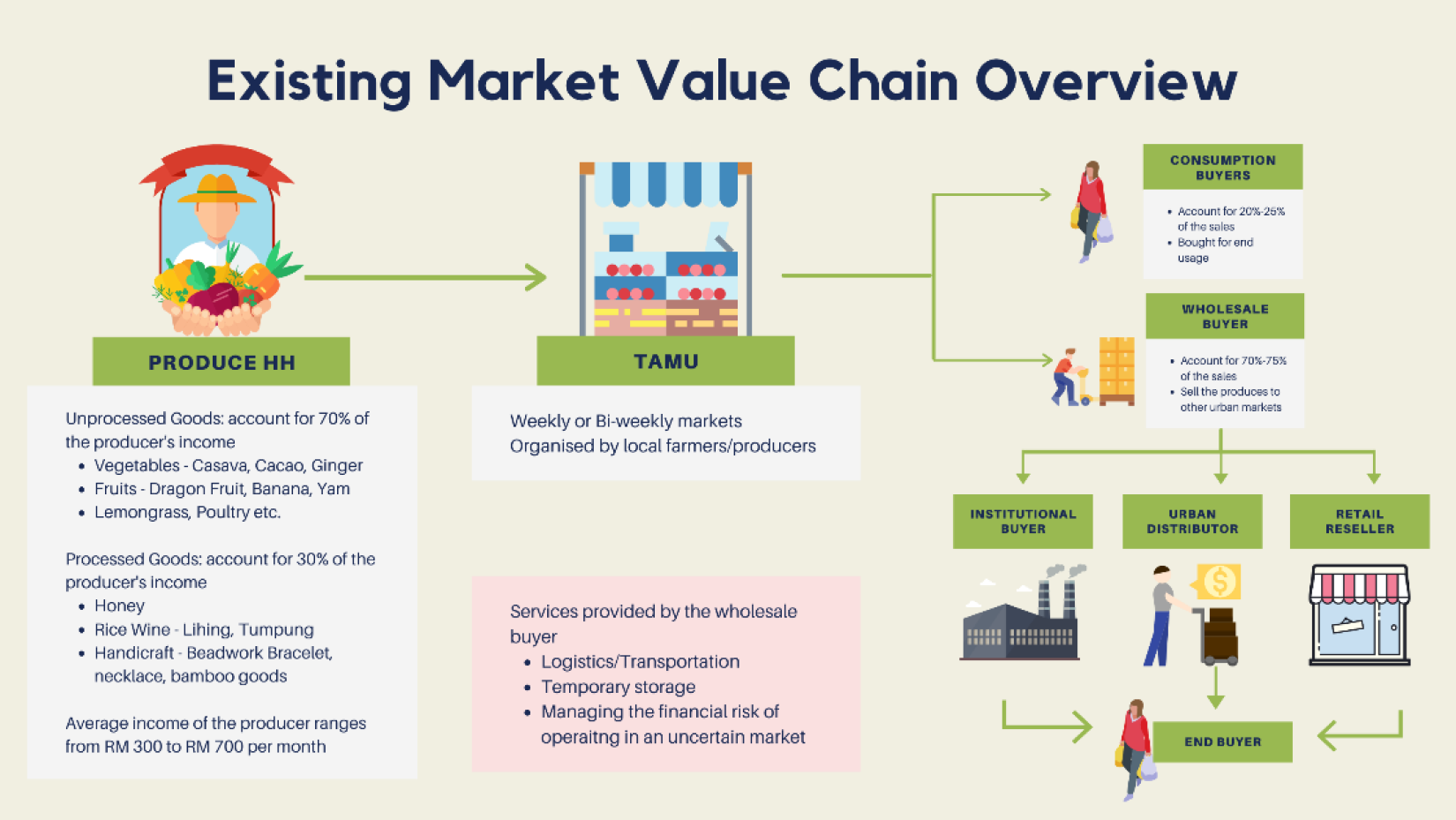
2. Identifying Levers for Change
While the feasibility study confirmed the high risk of technological and infrastructural barriers, our team decided to focus on opportunities for innovation and the appetite for digitalisation sparked by the pandemic. A majority of the rural producers and traders who were previously technophobic and more than contented with physical trade in the local Tamu (market), developed keen interest in e-commerce- having experienced the effects of movement restrictions on usual business practice. Almost 90-100% of those interviewed have bank accounts (Agrobank, Bank Simpanan Malaysia etc), enabling the use of digital payments and solving know-your-customer (KYC) and cash-in/cash-out challenges. A majority of the interviewees also own basic mobile phones or smart devices and use social media. Thus, the only immediate challenge for the team was to initiate a behavioural change: adoption of online commerce and payment system.
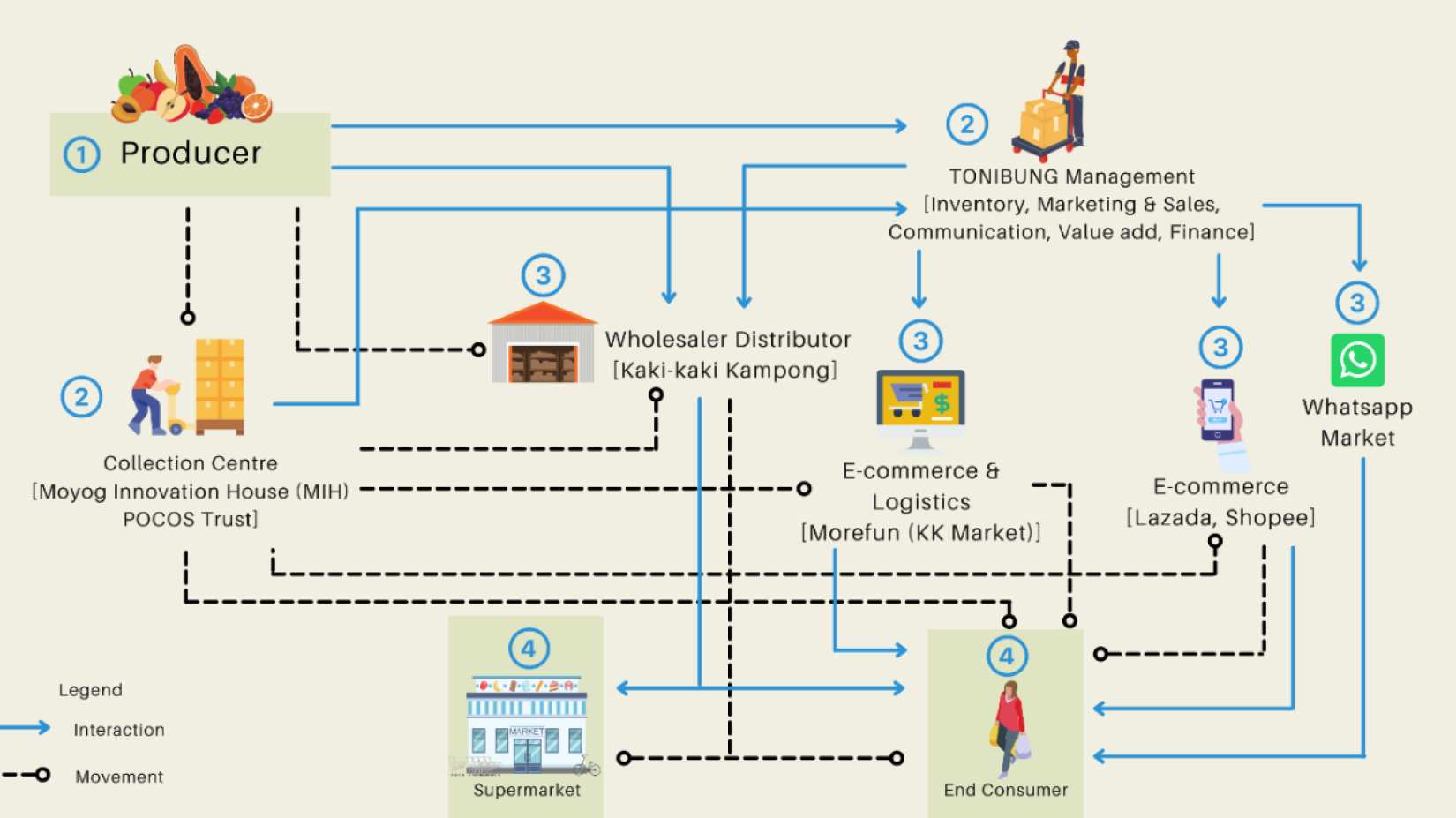
3. Starting small and localizing solutions
Faced with systemic and long-term structural challenges coupled with the challenges of MCO, the pilot was designed to start small and mobilize available resources within the local community. For the first pilot, the producers and aggregators were onboarded onto WhatsApp Business, which is an easier e-commerce platform for community with lower digital literacy. WhatsApp Business also uses lower internet bandwidth compared with more sophisticated e-commerce platforms such as Lazada and Shopee, helping to ensure inclusivity for wider group of beneficiaries and customers.

Processed goods were selected as the main commodity instead of raw, unprocessed produce to minimise obstacles posed by road access and warehousing facilities. The selection of villages and rural producers for the pilot was further narrowed based on the availability of basic 2G internet access and accessibility by aggregators. Local aggregators such as TONIBUNG, Moyog Innovation House (MIH), and PACOS Trust that have long-established rapport with the community are crucial rural-urban intermediaries in the e-commerce system, filling in the gaps of delivery, warehousing, and remittance in remote settings.
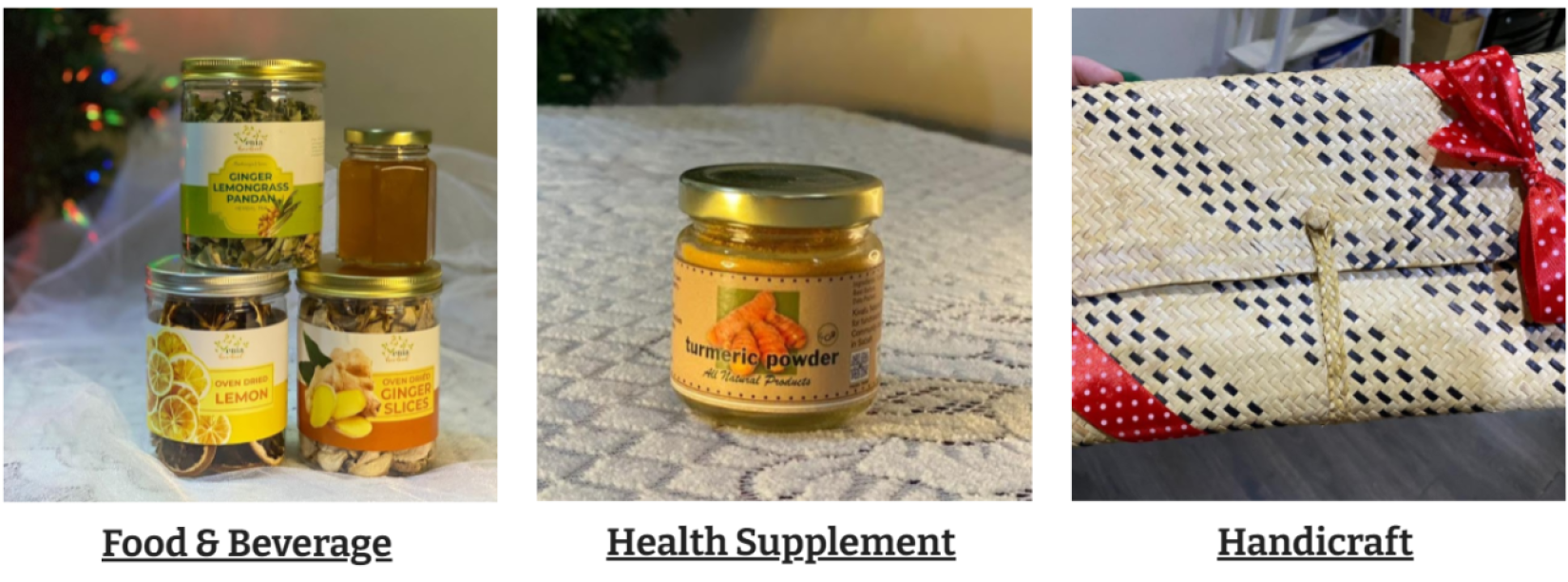
The set up and maintenance of the e-commerce system were designed to be low-at cost and scalable with growth of businesses to facilitate sustainability beyond the project period, Koondos operated using free tools eg. Google Sites, Google My Business, WhatsApp Business, Orderla and relied on local aggregators in connecting the supply chain versus the bigger players in the web design and supply chain market. Funds initially budgeted for website development were rechannelled toward starting capital for raw materials, improved product packaging, and storage equipment to assist in long-term business growth. It was also important to sustain the interest of the rural community on e-commerce by demonstrating significant benefits to the users in the pilot- whether in terms of profit, convenience to trade with local aggregator, and other spill over social goods to the community in empowering women and in improving connectivity.
To ensure our stakeholders are poised for long-term growth, we tapped into our networks of partners to source and adapt solutions for internet connectivity, delivery and business sustainability. From the onset, we leveraged UNCDF’s networks of e-commerce and e-wallet partners (Boost, Lazada, Shopee, Celcom, Digi, Maxis, and Easy Parcel) to advise on the requirements needed to make e-commerce a success and explore training available for the community.
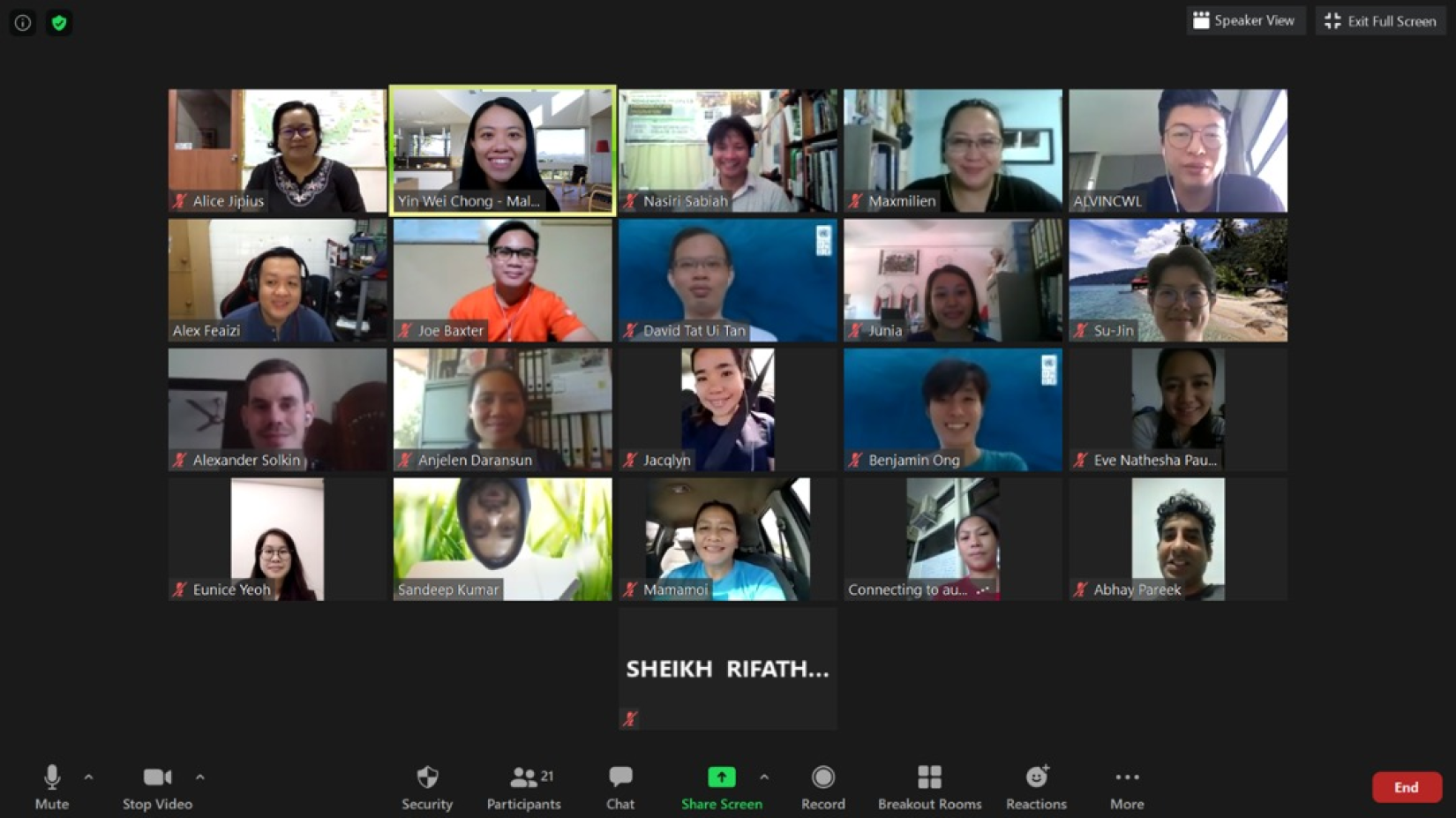
4. Pivoting and Navigating Trade-offs under Crisis
The team learnt to keep workplans agile and set contingencies from the onset to cope with the unpredictability of the pandemic. Due to snap elections followed by a post-election spike in COVID-19 cases, Moyog was reprioritized as our first pilot site, with Pagalungan delayed to the second phase due to inter-district travels ban. Product preparation, marketing, and crash course on photoshoots initially planned over three months were rolled out in a hybrid of online and on-the-ground coordination in a month’s time prior to the launch. The number of producers involved in the first pilot was also scaled down from 20 to 10 to ensure we provide tailored coaching to the producers with limited capacity and restriction in movement.

The Christmas sales were officially launched on 18 December 2020 on various social media platforms such as WhatsApp, Facebook, and by word of mouth. In just two weeks of sales, Koondos! raked up a revenue of USD500 and recorded a 15% profit margin. Post-mortem with community noted that the producers expressed great pride in the achievement, considering the many challenges and short turnaround time and help them regain similar amount of revenue pre-COVID-19. The first pilot has also generated valuable insights for the second pilot in Pagalungan and the scale-up for Moyog in 2021. With the Moyog proof of concept in hand, we reengaged the Sabah state government for collaboration with Sabah Credit Corporation, looking at promoting Koondos! in their marketplace page and train the communities on utilising e-payment system.
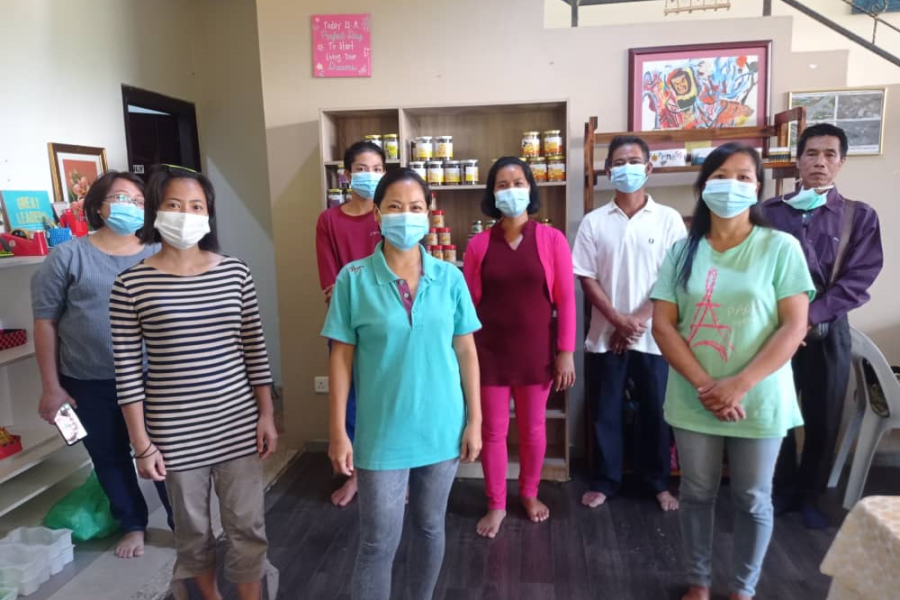
More to come on lessons learnt from our scale up in Moyog and sharing our next adventure for Pagalungan, so stay tuned!
Acknowledgement:
We would like to extend our gratitude to industry experts who have been with us through this journey in making this pilot a success; Alvin Chia from Maxis for the online training on WhatsApp for Business, Google My Business and Canva; Chip Yap from EasyParcel Sdn Bhd on the online training for delivery and packaging.
References:
1. https://opengovasia.com/malaysias-rural-smes-get-help-via-e-commerce-hubs/





